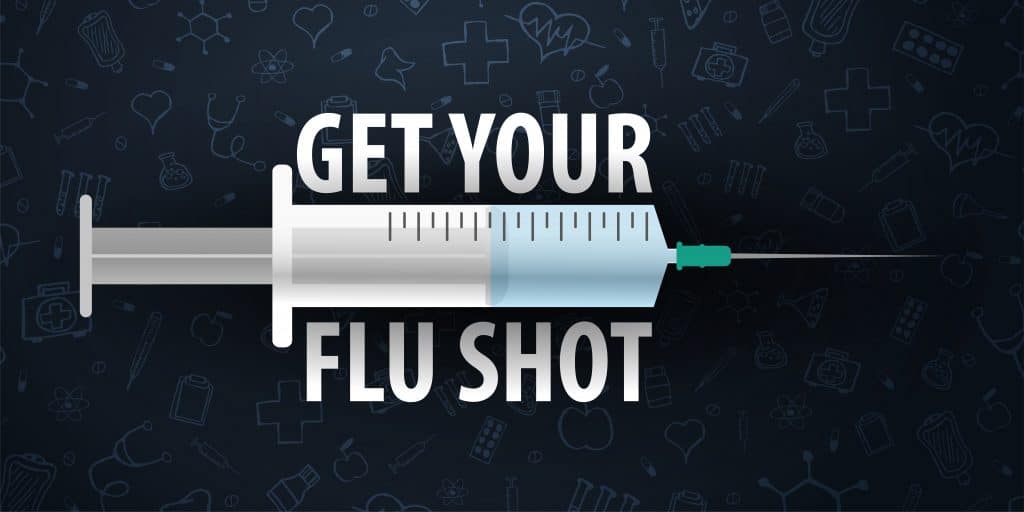
Why is it important to get a flu shot?
Now more than ever, it is important to get the flu shot to protect yourself and others from potentially contracting the flu. Our healthcare systems are already strained due to the current COVID-19 pandemic. By decreasing the number of hospitalized illnesses, such as the flu, doctors, nurses, and hospitals can better focus their time and resources on the fight against COVID.
Who should get vaccinated?
Anyone six months of age or older should get a flu shot every year. It is especially important for certain, vulnerable populations. People at High Risk for Flu Complications is a great resource that outlines the people most at risk and the best precautions to take. There are a few exceptions of people who should not get a flu shot, so be sure to speak to your healthcare professional.
Can the flu shot make me sick?
No, flu vaccines cannot cause flu illness. Flu vaccines given with a needle (i.e., flu shots) are made with either inactivated (killed) viruses, or with only a single protein from the flu virus. The nasal spray vaccine contains live viruses that are attenuated (weakened) so that they will also not cause illness. Some people report having minor side effects from the flu vaccine. These side effects include soreness/redness and/or swelling at the injection site, headache, low grade fever, nausea, or muscle aches — all minor symptoms compared to having the flu.
I got vaccinated last year, but I still got the flu. Why did this happen, and should I get a flu shot this year?
Yes! According to the Centers for Disease Control and Prevention, there are several reasons why someone might get flu symptoms, even after they have been vaccinated against flu.
- Some people can become ill from other respiratory viruses besides flu (e.g. rhinoviruses), which can cause similar symptoms. The flu vaccine only protects against flu, not other illnesses.
- Another explanation is that it is possible to be exposed to flu viruses, which cause flu, shortly before getting vaccinated or during the two-week period after vaccination that it takes for the body to develop immune protection. This exposure may result in a person becoming ill with flu before protection from vaccination takes effect.
- A third reason why some people may experience flu symptoms despite getting vaccinated is that they may have been exposed to a flu virus that is very different from the viruses the vaccine is designed to protect against. The ability of a flu vaccine to protect a person depends largely on the similarity or “match” between the viruses selected to make the vaccine and those spreading and causing illness. There are many different flu viruses that spread and cause illness among people.
- The final explanation for experiencing flu symptoms after vaccination is that flu vaccines vary in how well they work and some people who get vaccinated still get sick. However, when that happens, vaccination has been shown in several studies to reduce the severity of illness in those people who get vaccinated but still get sick.
Please get your flu shot!
You’ve convinced me — I’m ready to get one! Where should I go or what should I do next?
For the most up-to-date list of school clinics, visit schoolflu.com or go to https://health.ri.gov/flu/ for a link to all community and flu clinics. If you visit the School Flu website, you will see that BVP is hosting another flu clinic on October 28, 2020, from 5-7 p.m. at our Upper Elementary School campus at 3 Fairlawn Way in Lincoln. Registration is required ahead of time and fills up quickly, so sign up today!
Erika L. Iafrate is a Registered Nurse at Elementary School 2.


